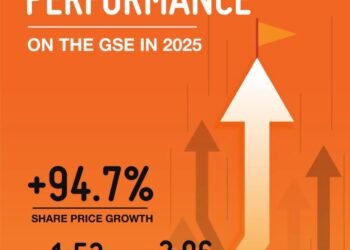Ghana risks losing out on a golden opportunity to increase revenue generation from the fast growing digital economy. This loss is likely to be as huge as the revenue loss from the untaxed majority in the informal sector.
Hitherto, the government keeps complaining about shortfalls in revenue generation, but taxing the digital economy has even not taken off as yet, after laborious engagements with stakeholders and tax experts in the last couple of years.
Ghana’s digital economy is expanding and this trend has been accelerated by the Covid-19 pandemic as businesses are rapidly moving away from physical existences (‘brick and mortar’ businesses) to registering their presence online.
Taxation of Ghana’s digital economy is not a new phenomenon. Section 16 of Ghana’s VAT Act 2013 (Act 870) stipulates the requirements for persons engaged in taxable activities to include non-resident persons who provide telecommunication services or electronic commerce for use or enjoyment in the country.
Section 5 of VAT Act 2013 (Act 870) is unambiguous about the activities that are taxable and these include activities in the country or partly in the country whether or not for pecuniary profit that involves or is intended to involve, in whole or in part, the supply of goods or services to another person for consideration.

Problem of raising taxes from the Digital Economy
These notwithstanding, a fundamental problem that has delayed this process is implementation. And this is the same problem that the country faces with the amended law on Income tax Act 2015 (Act 896) regarding the informal sector and Small and Medium Scale businesses. The inadequacy of structures and systems by the authorities such as the Ghana Revenue Authority (GRA) has impeded the smooth implementation of these laws till date.
Another problem that plagues taxing the digital economy is the improper management of data. The availability of data has improved over the years considering the penetration of mobile data usage, SMS, phone calls. Thus, there is no difficulty for retrieving information on users of these services from telecommunication companies (MTN, Airtel-Tigo, Vodafone, etc.) which keep records on users of their services. The Tax Identification Number (TIN) provides another useful means to collate data on tax payers. These systems combined can be used to trace tax payments by individuals doing business on online platforms. Yet, the management of these data to be used in capturing online businesses for further taxation of the digital economy remains unexplored.
Furthermore, the complexities and nature of evolution of the digital economy also poses a challenge to authorities implementing the tax. However, waiting to understand all of the intricacies surrounding the digital economy before swiftly making inroads to tax digital services will have been too late an effort.
Analyzing ways to tax the digital economy
Maintaining a robust management system that would be used to track and trace persons who are involved in online transactions can be used to track such businesses in order to tax the digital economy. For example, with the use of the TIN, no one person has multiple identification and therefore where TIN is required for online transactions, this would help trace such businesses.
Every business that has a website has a web host, and this host site has records of all businesses hosting with them. Regulators may therefore monitor these host sites to be able to find information of online businesses on those platforms in order to capture them in the digital services taxation.
Online trading businesses or e-commerce are regulated by the National Communication Authority (NCA). Already, the NCAs partnership with the Ghana Revenue Authority (GRA) for generating revenue from the communication service tax has been largely successful. And this can be replicated in this regard to create an avenue for revenue generation for e-commerce.
Furthermore, Ghana is not alone in struggles with the complex nature of the digital economy, most countries in Europe does too. In such jurisdictions, however, businesses within the digital economy are taxed 3% of their gross income as digital service tax just so that they do not lose out on revenues from that space. For as long as the government waits to find ways to capture such businesses within the tax net, they are also looking for ways to evade paying taxes. The government can implement similar taxes for all such businesses in the digital economy for the interim and adjust as authorities better understand the digital economy.
The taxation of the digital economy is a very crucial issue that requires utmost attention from the government. At a time when the economy is facing challenges with a debt crisis, this avenue can help to reduce the debt burden. All that is required is the political will of the government and the commitment of institutions to make this move.
READ ALSO: New revenue measures: Ghana to join the digital services tax bandwagon soon?























